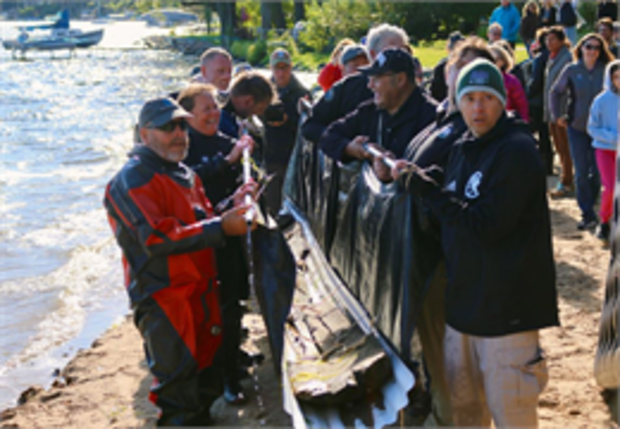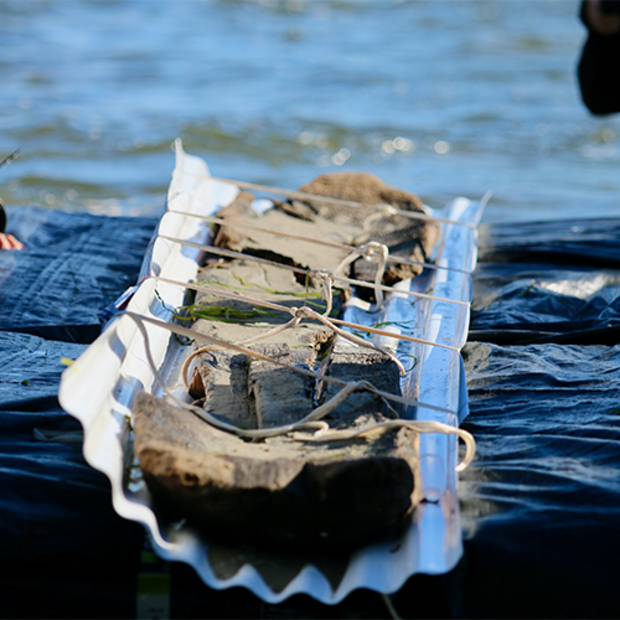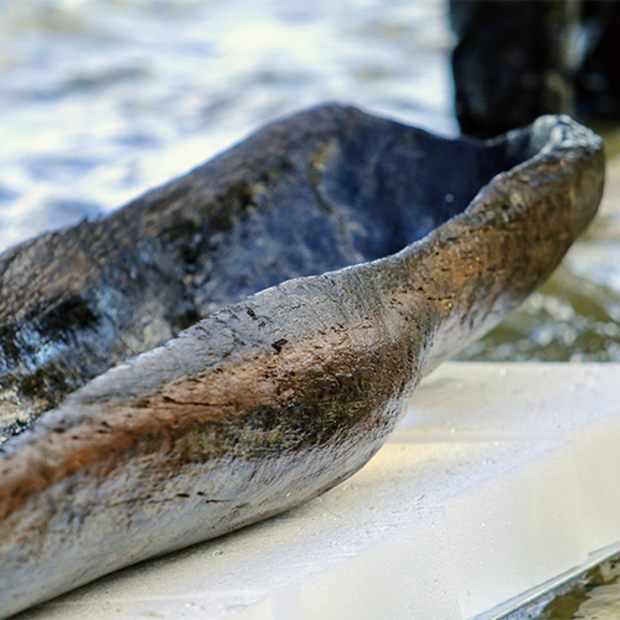A 3,000-year-old canoe has been discovered in a Wisconsin lake: "Truly incredible"
A 3,000-year-old canoe has been discovered in a Wisconsin lake, the Wisconsin Historical Society announced Thursday. The canoe dates back to 1000 B.C., making it the oldest ever discovered in the Great Lakes region by about 1,000 years.
The discovery in Madison's Lake Mendota comes less than a year after a 1,200-year-old canoe was found, the historical society said in a press release. Both of the canoes are now being preserved with help from Wisconsin's Native Nations.
The 3,000-year-old dugout canoe was found by a maritime archaeologist during a recreational dive in May. Tamara Thomsen found the canoe in the same area where the first was discovered. It was excavated by hand on Thursday and will now be cleaned and cared for by tribal members and the historical society.
The canoe will then be hand-lowered into a large preservation vat, which also contains the 1,200-year-old canoe. The preservation process will take two years, and the canoes will be freeze-dried to remove any remaining water.
The 3,000-year-old canoe is carved from a single piece of white oak and is about 14.5 feet long. The first canoe was fully intact when found. It dates back to 800 A.D. and is the oldest fully intact vessel ever to be extracted from Wisconsin waters. That boat also had net sinkers on board used for fishing.
The canoes could have been left on the shoreline, which changed over time and got much lower, according to Dr. James Skibo, Wisconsin Historical Society's state archaeologist.
"Finding an additional historically significant canoe in Lake Mendota is truly incredible and unlocks invaluable research and educational opportunities to explore the technological, cultural, and stylistic changes that occurred in dugout canoe design over 3,000 years," Skibo said.
The canoes will also help provide more details about how the Ho-Chunk and other Native Americans lived in the area thousands of years ago, the society said.
The Ho-Chunk Nation is a federally-recognized tribal nation based in Wisconsin, previously known as the Wisconsin Winnebago Tribe. The Ho-Chunk, which means "People of the Big Voice," are not located on a single reservation but own land throughout Wisconsin, Illinois and Minnesota.
"The recovery of this canoe built by our ancestors gives further physical proof that Native people have occupied Teejop (Four Lakes) for millennia, that our ancestral lands are here and we had a developed society of transportation, trade and commerce," said Ho-Chunk President Marlon WhiteEagle. "Every person that harvested and constructed this caašgegu (white oak) into a canoe put a piece of themselves into it. By preserving this canoe, we are honoring those that came before us. We appreciate our partnership with the Wisconsin Historical Society, working together to preserve part of not only our ancestors' history but our state's history."








